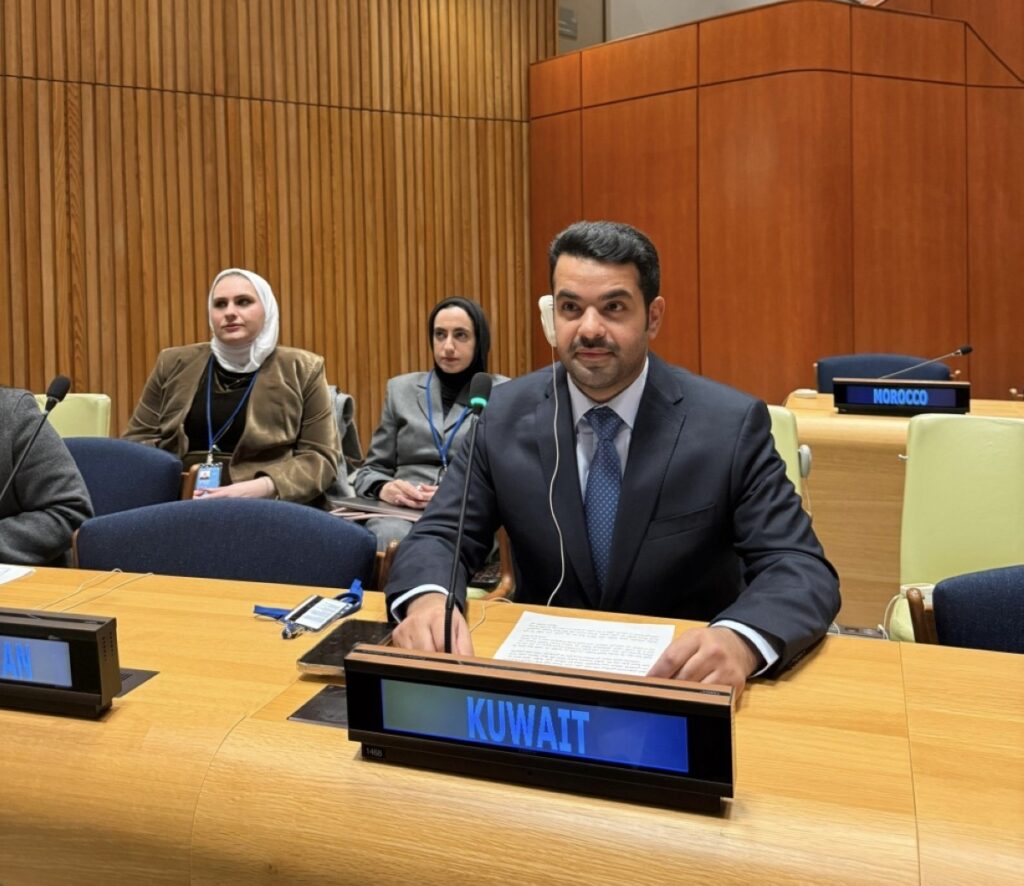KUWAIT: Kuwait reaffirmed its commitment to combating human trafficking during a statement delivered by Fahad Al-Mutairi, Deputy Public Prosecutor and member of the Technical Office, on Monday evening at a high-level United Nations General Assembly meeting reviewing the Global Plan of Action to Combat Trafficking in Persons. Al-Mutairi highlighted that since joining the United Nations Convention against Transnational Organized Crime and its protocols, Kuwait has implemented measures criminalizing forms of exploitation carried out online or spanning across borders.
He noted that “modern technologies, including artificial intelligence, have become tools for human trafficking networks, whether in targeting victims through algorithms, creating fake digital identities, concealing financial transfers, or using digital platforms for recruitment and exploitation.” He warned that the rapid advancement of artificial intelligence presents new challenges for justice systems, including difficulties in early detection, complex electronic evidence, and the speed at which crimes cross borders. “These developments necessitate clear mechanisms such as AI-based early detection tools, strengthened partnerships with technology companies to monitor exploitative content, shared databases, and integration of national referral systems with digital platforms,” Al-Mutairi said.
He further stressed the importance of international regulations to ensure AI is used safely and not exploited for recruitment or human trafficking. Al-Mutairi cited Kuwait’s advanced legal framework, including Law No. (91) of 2013 on combating human trafficking and migrant smuggling, which defines the crime and imposes harsher penalties for organized or transnational offenses. He also highlighted Law No. (63) of 2015 on combating information technology crimes, which criminalizes the use of digital platforms to promote or facilitate human trafficking, imposes penalties for money laundering through electronic means, and addresses online promotion of criminal organizations.
Aggravating circumstances include offenses committed by organized gangs or through the abuse of public office. He underscored that Kuwait’s legislation enables authorities to track criminal networks using modern technologies, analyze digital evidence, identify behavioral patterns, and monitor electronic communications linked to trafficking operations. Concluding his statement, Al-Mutairi emphasized the need for the updated Global Plan of Action to focus on the role of modern technologies in human trafficking and the importance of cooperation with private sector and digital platforms to prevent, detect, and prosecute exploitative practices, describing this as a cornerstone of prevention, protection and justice efforts. — KUNA

